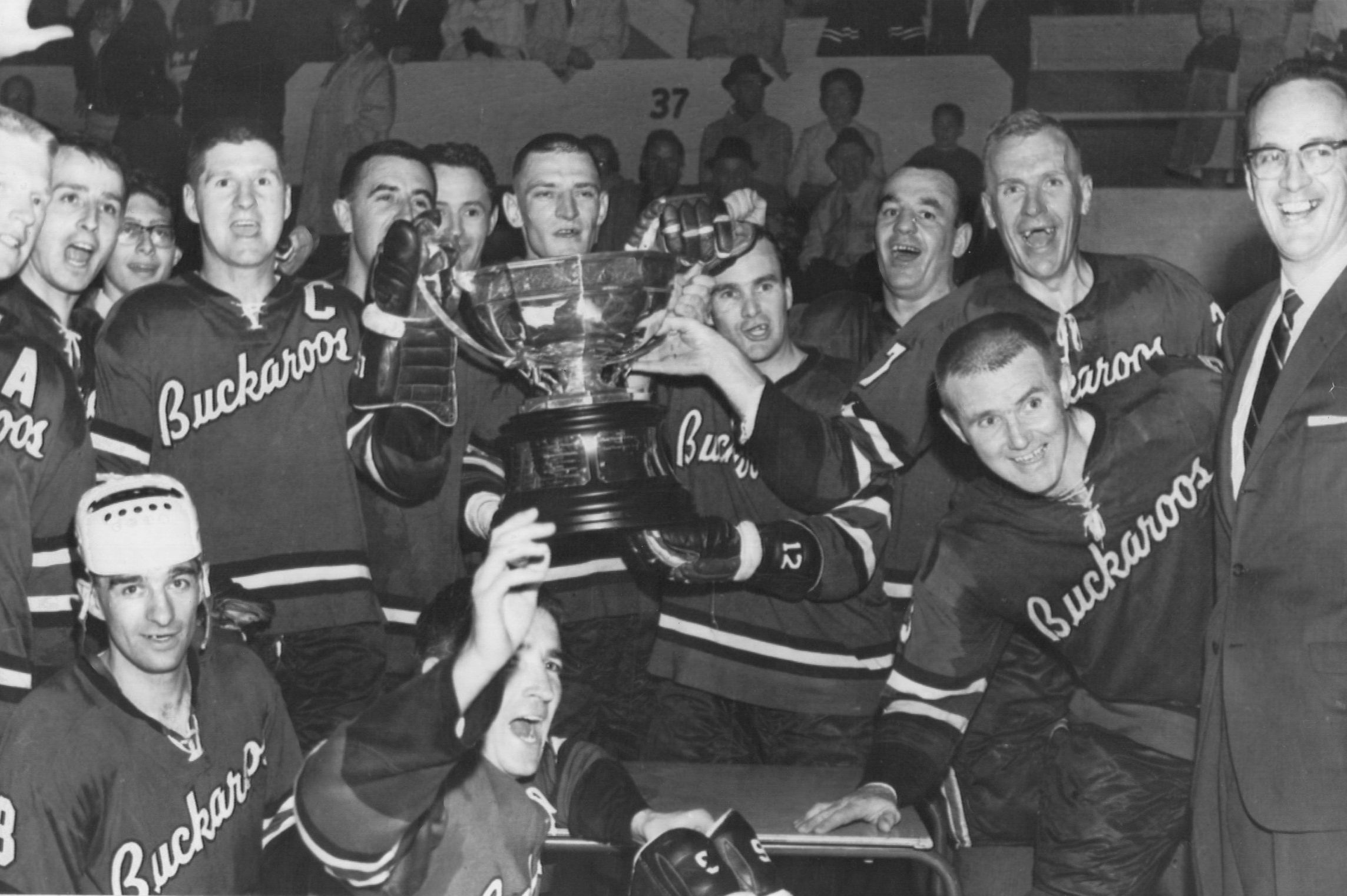Why Timbers Coach Caleb Porter Believes Last Year Wasn't a Total Disaster—and This Year Could Be Amazing
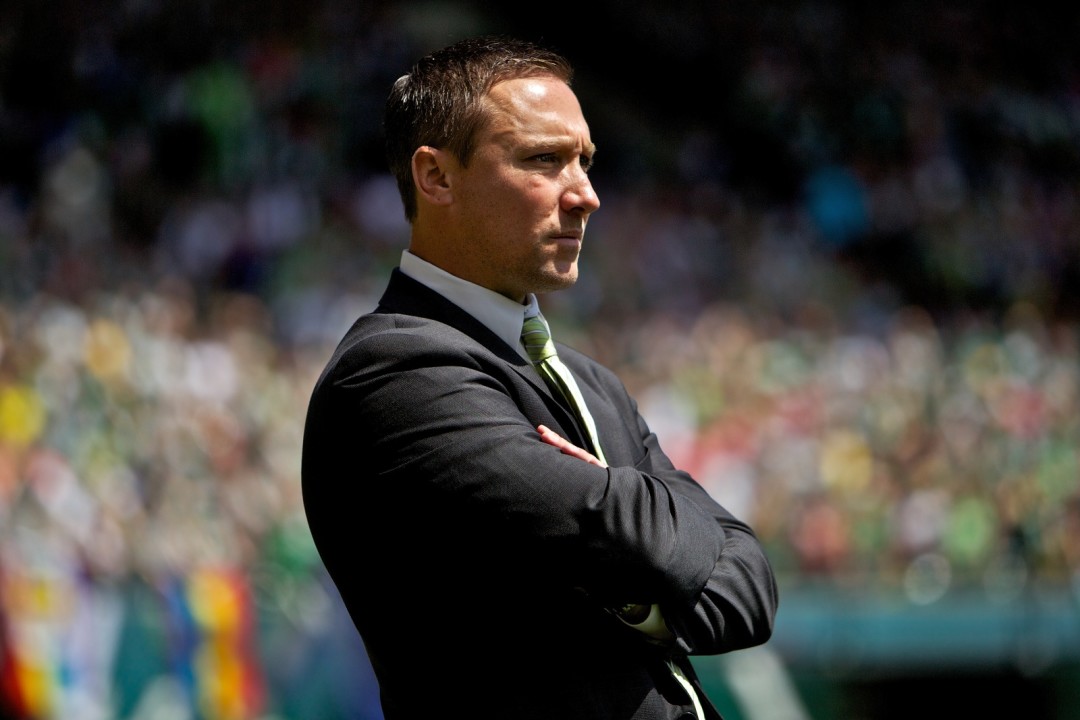
Portland Timbers head coach Caleb Porter on the sidelines against LA Galaxy (May 11, 2014)
Image: Craig Mitchelldyer
Caleb Porter isn’t panicking.
Of course, there’s no question that the 2014 Portland Timbers season was a disappointment—and the 40-year-old head coach knows that better than anybody. After a dreadful start to the season in which they didn’t win until Game 9, the Timbers missed the 2014 playoffs by a single point. They also rather improbably crashed out of the continental Champions League in Honduras, and exited the US Open Cup knockout tournament in a painful 3–1 loss to their archrivals, the Seattle Sounders.
A strange, confounding season for a team some favored to compete for the MLS Cup.
But Porter doesn’t get swept up in emotion—at least not when I call him to ask him about what he’s learned in his two years as an MLS coach.
He tells me that parsing what went wrong means picking out the stuff that went right, too. On one hand, the Timbers conceded 52 goals last year, making for one of the weakest defenses in the league. On the other hand, the Timbers scored goals by the bucket—61 in total, third most in the league—and lost only two more games than the eventual MLS Cup champions, the LA Galaxy.
Somewhere between the extremes of disappointment and excellence, a championship-caliber team already lurks.
When the 2015 season kicks off on March 7, the Timbers Army expectations will have never been higher. After a quiet off-season, during which other teams dropped millions on big names, the Timbers emphasized stability and consistency, returning 21 of last year’s players. Porter answered our questions about fixing the team, getting the right balance in the locker room, and what he’s learned so far.
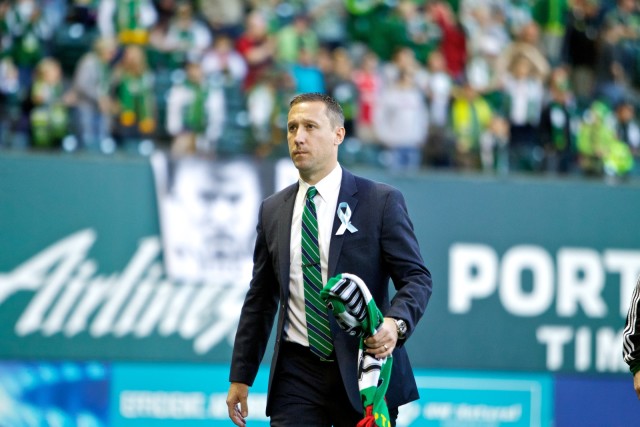
Porter before a match against Chivas USA (April 12, 2014)
Image: Craig Mitchelldyer
Last year obviously didn’t go as planned. How do you fix it?
As a coach you’re always following a cycle of preparation, performance, and reflection. It's an ongoing daily to weekly to monthly to season. That’s the cycle you have to follow. That’s how you have to think as a coach. And ultimately, your decisions on how you play, your decisions on how you train, your decisions on your tactics—they’re always based on what you know through past evidence. You need to really rely on that past evidence as an indicator of future performance. If you’re not a reflective person, if you’re not analytical, you can’t be a coach.
But the big thing is—I’ve been a head coach now for 10 years, and I’ve been coaching for 15—the big thing I’ve learned as a head coach is you can’t overcorrect. You gotta be real careful with that. In my early days of coaching, there were many times that I was overcorrecting, probably more than undercorrecting. But as time goes on, you learn that the real key in fixing issues is to not throw the baby out with the bathwater, to [instead] make microtweaks.
"Soccer is a really cruel sport. You can play well and lose. That happens all the time. You can be the better team and—probably more than any other sport—the better team doesn’t always win."—Caleb Porter
The other key is to have a consistent approach, a consistent philosophy, system that you work from. And that makes it easy to make corrections because otherwise, if you’re changing your system all the time, if you’re changing your lineups too much, then you’re really shooting at a moving target. That’s the analogy I like to use a lot. You have your target, your target is your goals and what you want to accomplish. Your target is also your system. You go into a game and if you shoot and you miss, you don’t move the target, you move the gun. Moving the gun means maybe you change a player in the lineup. Maybe you tweak your tactics a little bit. But to do that you have to reflect really objectively on each game, and on the entire season. That’s the way I think as a coach.
In terms of last year, when the dust settled at the end of the year, it was very important that me, Merritt [Paulson, the club’s owner], and Gavin [Wilkinson, the general manager] sat down and reflected on the entire season: what went right, what went wrong, and obviously the most recent evidence [of the team’s performance], which was the last portion of the year. That’s a real key.
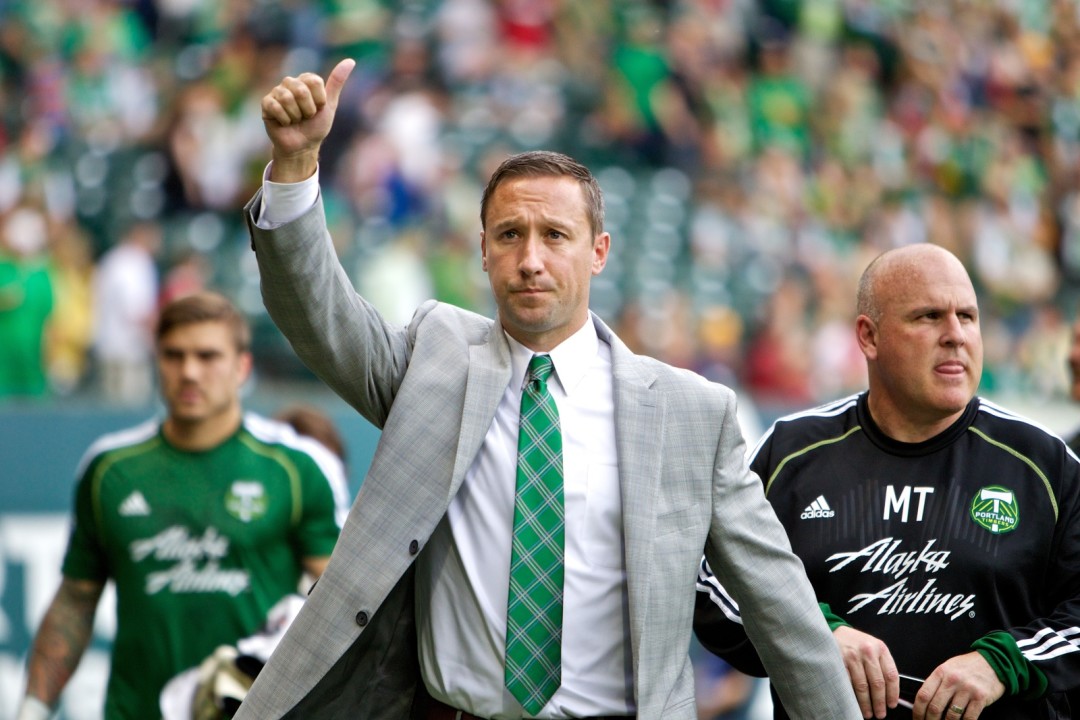
Caleb Porter before a match against FC Dallas (June 11, 2014)
Image: Craig Mitchelldyer
What was the takeaway from those meetings?
This is a bottom-line business. Ultimately, I’m evaluated—the club’s evaluated—on the bottom-line. So we were not happy that we didn’t make the playoffs. But because we didn’t make the playoffs doesn’t all of a sudden mean we’re going to blow the team up. That would be a huge mistake. Now if we finished with 25 points, and we lost a lot of games at the end of the year, and there were a lot of problems at the end of the year, then we would have to blow the team up. So I think getting that sweet spot of what you need to correct, and what do you need to keep, is a real key from game to game and season to season.
When we sat down and we looked at the season, obviously in the first eight games we fell short. We got five points. But a lot of those problems, we corrected. And the points and the performance showed that. In the last 26 games, we were second or third in the league points per game. And if you look at the last nine games, we lost one. And if you look at the defensive side, which was really our Achilles’ heel for the first three quarters of the year, we had four shutouts in the last five games. So even on the defensive side we corrected those things.
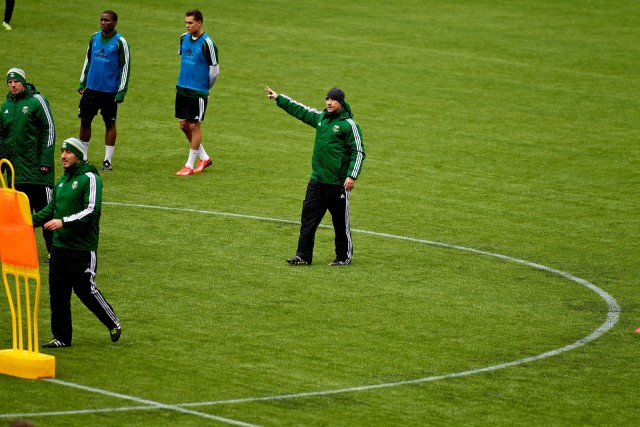
Porter in training (January 29, 2014)
Image: Craig Mitchelldyer
Fans aren’t always going to think about those things that much in depth. They think about the bottom line. We think about the bottom line, too. But it’s my job to make sure we keep our target, we move the gun, and we make microtweaks. We felt ultimately that we had a few things to correct, but that we were really on track at the end of the year.
It’s funny about the format of MLS and the playoffs: with 49 points, a lot of years you get in. In the Eastern Conference, our 49 points would’ve gotten in last year. Now, that doesn’t matter because that’s the format, and you gotta be top five to get into the playoffs, and we weren’t. But we very well could’ve been in the playoffs, and the whole season would be viewed very differently. We missed it by a point.
But it’s my job to be rational, and say, “Listen, look at the evidence. Look at how we finished, look at the adjustments we made midseason with our signings with [Fanendo] Adi and [Liam] Ridgwell, OK?”
Obviously the start of the season was not good enough last year, and we need to make sure this year that we hit the ground running and we don’t have a slow start again. But if we follow the track that we were on at the end of the year, then there’s no reason to believe that it will happen. The slow start happened because we were missing a few dimensions on our team. Simple. We were playing pretty well, that’s the other interesting thing. We didn’t lose a lot out of the first eight—we drew five of those games. We were the better the team in most of those games.
Is there anything you wish you had done differently?
Another real key to being a coach is you gotta know the team, you gotta know the league, and you gotta know the competition. It takes time to build your team, especially when you’re coming into a situation where you have a lot of new players. It takes time to know your competition. It takes time to get in sync with the rhythm of the league.
One of the things I’ve noticed in the last two years is we’ve lost the least amount of games of any team in the league in the last two years. That gets lost in the shuffle. We’ve lost 14 games out of 68 in the last two years. We haven’t won as many as we needed to, but that’s a real positive. Our draws are a little bit of the evolution of this club, going from a team that didn’t win and wasn’t close in a lot of games to, now, we’re winning and we’re drawing. Hopefully now those draws become wins.
My point is, we’ve learned a lot. I’ve learned a lot in the last two years about my team, my opponents, and what works and what doesn’t work. But the reality is we’re only four years into it, and only two years into this evolution with the new coach and the new philosophy. Some of the things that I’ve learned is that it takes a bit of time to go from a losing team to a winning team. And I think that’s the real reason why we’ve drawn more games than we would’ve liked.
But there are a lot of positive things that have happened that show that we’re on the right track, and that we’re evolving into a realistic contender to eventually raise trophies here.
One of the things that seemed to go right last year was the team’s attitude. How do you keep the locker room together?
It’s a real key to winning. It doesn’t matter what the sport is, or what the level is—I’ve never seen a successful team that didn’t have good team chemistry, that didn’t have a tight locker room. That’s a little tougher at the pro level because obviously you have more pressures from the media. Players are making more money. To win you have to have talent, so by getting more individual talent sometimes it’s a little more difficult to make sure it meshes together and plays in harmony. Ultimately, individuals have to sacrifice for the good of the team and the team goals. Sometimes, sometimes, at the top level, with the players that make a lot of money, they might think more about themselves.
My real goal in adding any player is making sure they are as talented as possible—I don’t want to get average players—but that they have good character. There are players out there that are really talented but don’t have good character. I don’t want any of those guys in my club or in my locker room. I’ve found that the really talented player that can perform individually might be a benefit short-term. Long-term, it disrupts your chemistry.
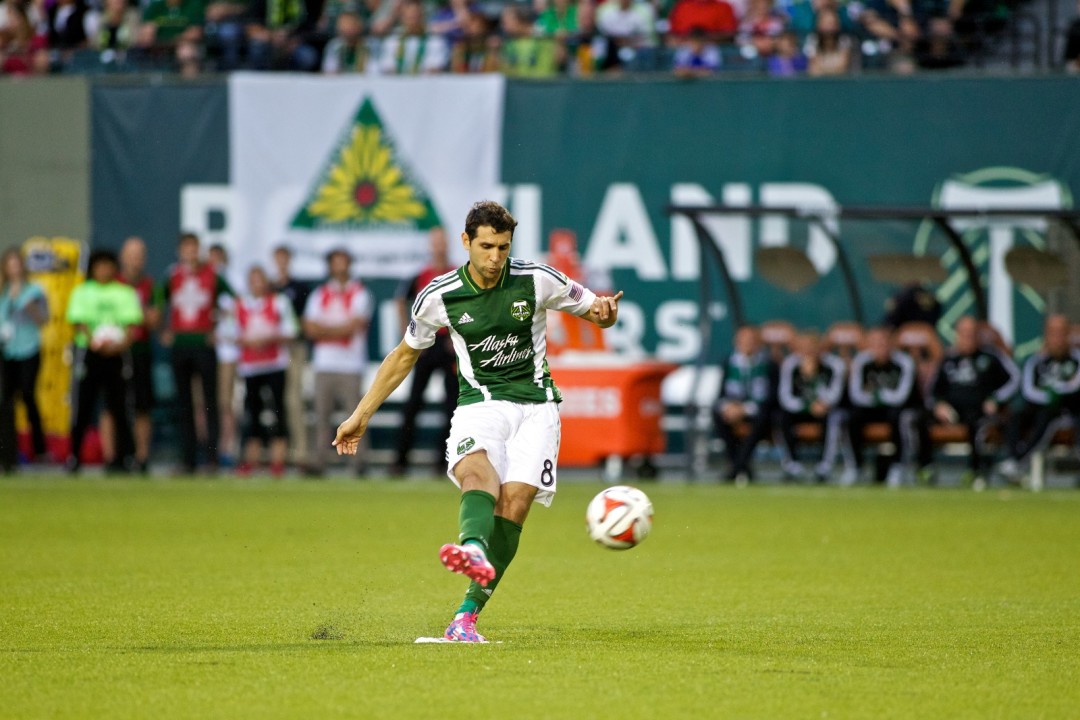
Midfielder Diego Valeri in a match against the Colorado Rapids (July 18, 2014)
Image: Craig Mitchelldyer
How do you assess chemistry while you’re scouting?
Well, we’re thorough. The key is you do your homework. We don’t sign a player unless we meet with them. Whether that’s sitting down or talking on the phone, I’ve never signed a player I haven’t talked to. And the best thing you can do is talk to people who know more about the player than you do. The reality is I’m not going to know as much as their past coaches, and the people they’ve played with. So Gavin and I do a lot of research to make sure that we’re getting the type of guy who will come in and obviously perform at a high level. But it needs to be more than that. It needs to be a guy that fits in the locker room. And really what that means is that they will come in and be a part of the team and play a role.
Diego Valeri, for me, is the epitome of the type of player that we want to continue signing. He’s one of the best players in the league, but he also is one of the best guys I’ve ever coached. He’s a good person. He cares about the club, and he cares about his relationship with the players and the coaching staff. He wants to win, first and foremost.
It’s pretty easy to find guys like that, but a lot of the time they’re not good enough. It’s a little hard to find guys who are supremely talented, who have character and the winning qualities. He’s the epitome of why we’ve succeeded in the past couple years. We’ve found good guys.
Once you have ’em in, this is your team. And if you get the wrong guys, and you go through a patch like we went through last year, and the bullets start flying, you’re in trouble. Then you lose the team. You lose the locker room. If you get the wrong guys, you find out when the going gets tough what they’re really like. I certainly can remember as a player that if you have the wrong type of guys, what you see is a really dysfunctional locker room. People pointing fingers, and people blaming.
Did that become a factor last year?
The key to developing a consistent, winning culture is making sure you get the right guys coming in. When you have those inevitable peaks and valleys, the character and the chemistry of the locker room will pull you through it. Last season, you saw that with this team. You look at some others, I don’t want to name examples, but you look at a lot of other teams in the league and they had rough starts and they never pulled out of it. I was really proud of last year. I was really disappointed that we didn’t make the playoffs because I thought we could beat anybody. We showed that when we beat Vancouver 3–0 twice, and beat Dallas 2–0, and outplayed Salt Lake. We were primed to make a run, but we would’ve never been in that situation unless we had good chemistry and the right guys in the locker room.
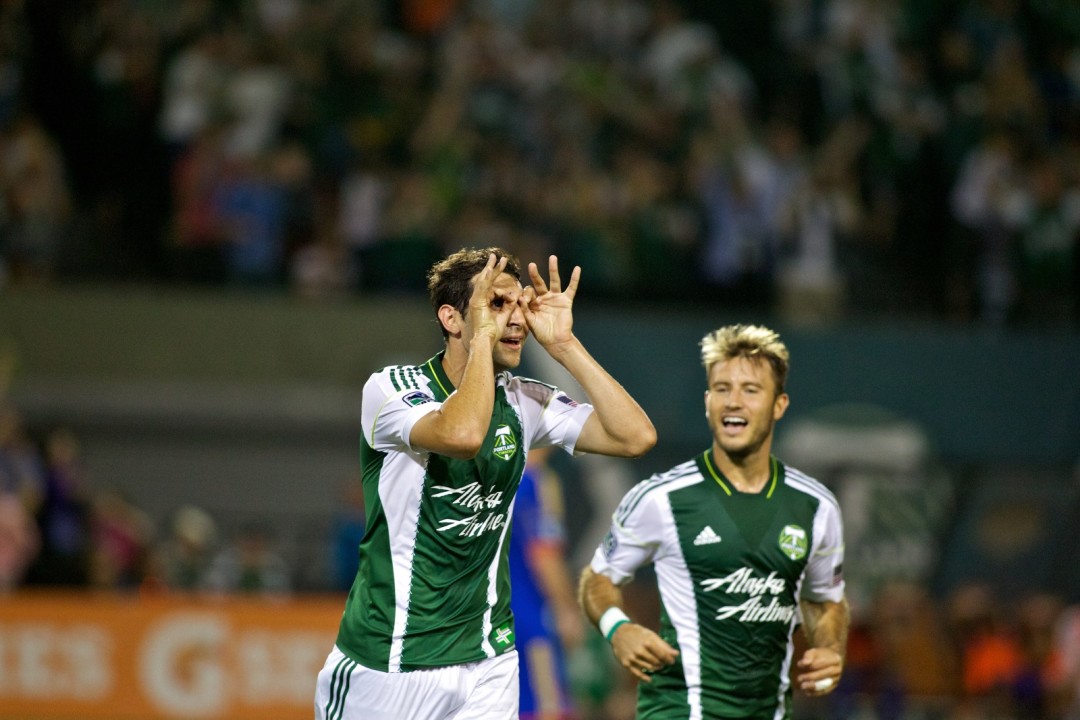
Valeri (July 18, 2014)
Image: Craig Mitchelldyer
Valeri and Will Johnson, two of your key players, are both out injured for the start of the season. Are you concerned?
Obviously. It’s not going to be an easy start in terms of the schedule. One of the other things we’ve tried really hard to develop is depth. You have to have it at the pro level because you’re gonna get injuries, you have to manage multiple competitions. If you’re a team that’s not deep, you’re going to struggle when adversity hits.
My biggest goal as a coach is to try to create continuity and stability. Because soccer is a really cruel sport. You can play well and lose. That happens all the time. You can be the better team and—probably more than any other sport—the better team doesn’t always win. But I think if you have a consistent way of playing, you increase your chances. And with the long season, the more depth you have when you do have adversity with injuries, that helps your chances of riding it though. And like I said with the locker room, you have rough patches, but by having a strong locker room you increase your chances of riding through those things.
As a coach, the goal is to increase your chances of winning over time. I think we’ve built a team with depth enough to be fine with Valeri out. Obviously we’re a better team with Valeri in and Will Johnson in, but at the end of the year last year we showed that with Ben Zemanski plugged in [to Johnson’s usual position], that we were just as good. We performed well and we got points.
You don’t replace players, but what you want to do is be in a situation where you have guys that can step right in and maintain that high level. With Valeri out, there’s a couple options. You can play Gaston [Fernandez] or you can play Darlington Nagbe. Or you play two strikers and change your system. Those are things we’ll be sorting out.
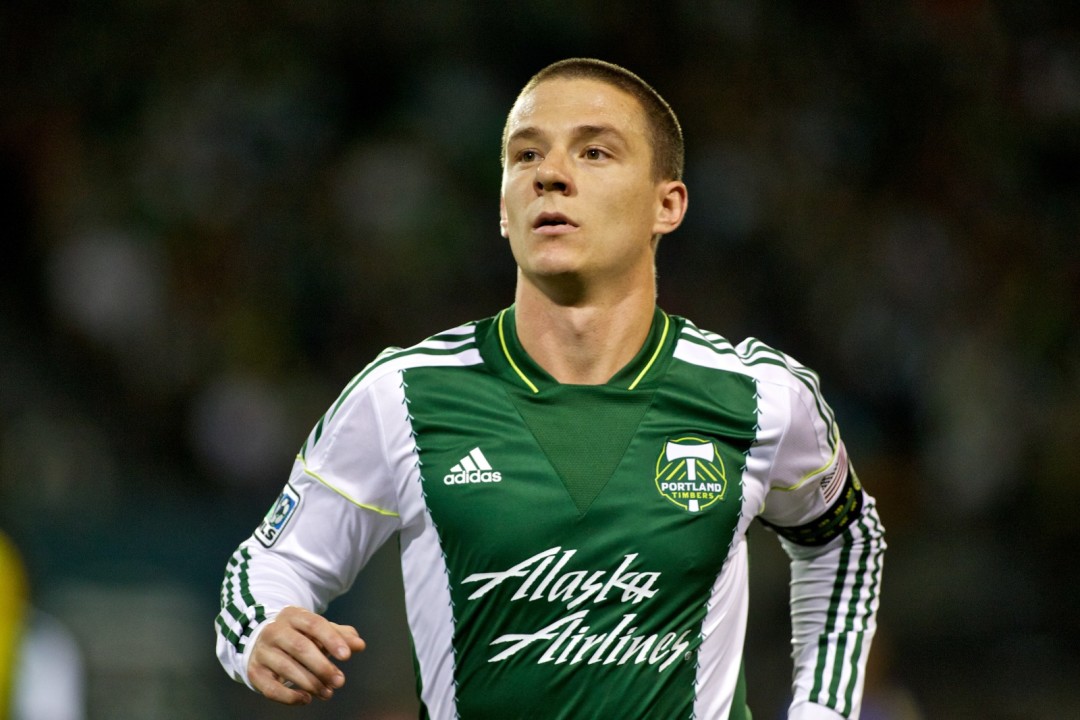
Midfielder Will Johnson in a match against the Colorado Rapids (July 18, 2014)
Image: Craig Mitchelldyer
Two good teams, Sporting Kansas City and Houston Dynamo, are both joining an already difficult Western Conference this year. Does that concern you?
Well, it won’t get easier. No doubt. But I think rising tides raise all ships. I’ve always felt that by bringing in tougher teams, you raise your level. My level will go up, the players’ level will go up.
One of the things that I’ve noticed with this team the last two years is that when I’ve needed more, we’ve gotten more. When our backs were against the wall last year, we always seemed to step up and get points. Like going on the road and winning seven times. I can remember countless times last year where I thought, ‘You know, this is a tough game and we have to win it.’ We went on the road at Salt Lake and I remember thinking, this is a must-win. I remember going to New York thinking it was a must win. I remember going to Vancouver thinking it was a must-win. This team seems to really rise to the occasion. The bigger the challenge, the more they step up and the better they play. It’s funny because some of our poorer performances have been against teams that on paper we might have taken lightly.
I kind of like the fact that every game’s going to be really difficult. We’re going to have to get into the playoffs this year. We’re going to have to perform from start to finish very well this season. I think it will bring the best out of us. Our guard will be up, we’ll be more focused and probably perform with it better.
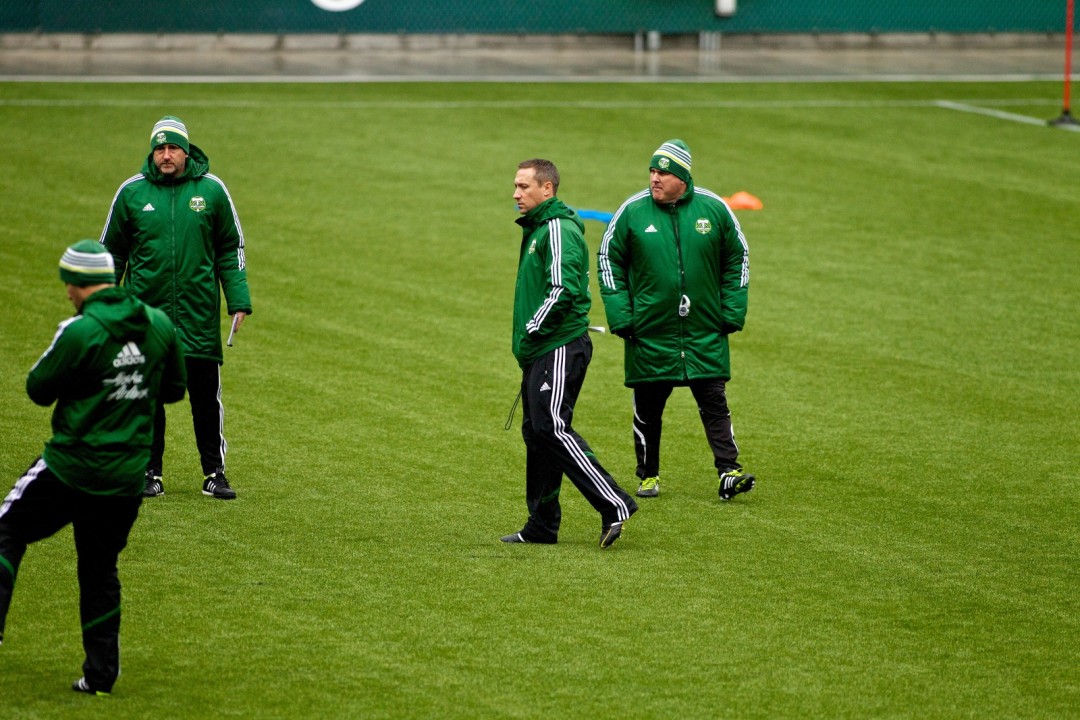
Porter in training (January 29, 2014)
Image: Craig Mitchelldyer
At Akron especially, you developed a reputation for bringing along younger players. What does T2, Portland’s new lower-division reserve team, mean for you as a coach?
I’m really excited. I think it’s huge for our club, not to have any holes in our infrastructure. We want to vertically integrate our club, where we have one team, one philosophy. From academy to first team, we want to have a natural hierarchy and a progression. This allows us to have that. You have the academy, then U-23s, then T2, and then the first team. We really have a team philosophy and a concept in this club now. It’s kind of one staff. [T2 head coach] Jay Vidovic will at times be up with the first team on the bench, he’ll be observing training. There will be times when players will be down with him, or his players up with us. But it will be very much a cooperation. And the step below that, Jay will be cooperating with Jim Rilatt and the Timbers U-23s. And then below that the academy with Andrew Gregor and Mike Smith [with the Timbers U-16 team]
This allows you to develop players more seamlessly. If they’re starting out with the academy, and already getting some of the training sessions with the first team and already playing the way we do, then it allows us to evaluate whether players can move up, and it also allows us to prepare those players to move up. With T2 it’s crucial.
In MLS there’s always been a hole without having that reserve league. There are a lot of players that are good players that just don’t get enough games, because they’re not quite ready to play first team games. And how you get those players meaningful games and training sessions was really difficult. Last year we loaned guys out [to USL-PRO Sacramento], which actually worked OK, but it will be a lot better now because we actually have a team we’re working hand in hand with. They will be playing in a way that’s similar philosophically to our team, which again allows us to move players up and down, and evaluate players in a much more efficient way.
The hiring of Jay [Vidovic] for me was a big thing, and T2 was a big thing for our club. Guys like Taylor Peay, George Fochive, and Schillo [Tschuma], draft picks last year. We’re really excited about them, but they’re just not quite ready. So I’m excited that they can get a full season of games with T2. I think that will help their development.
And we can also use T2 to sign younger players, and take a couple years to develop them, and bring them up to the first team if they deserve it and earn it.
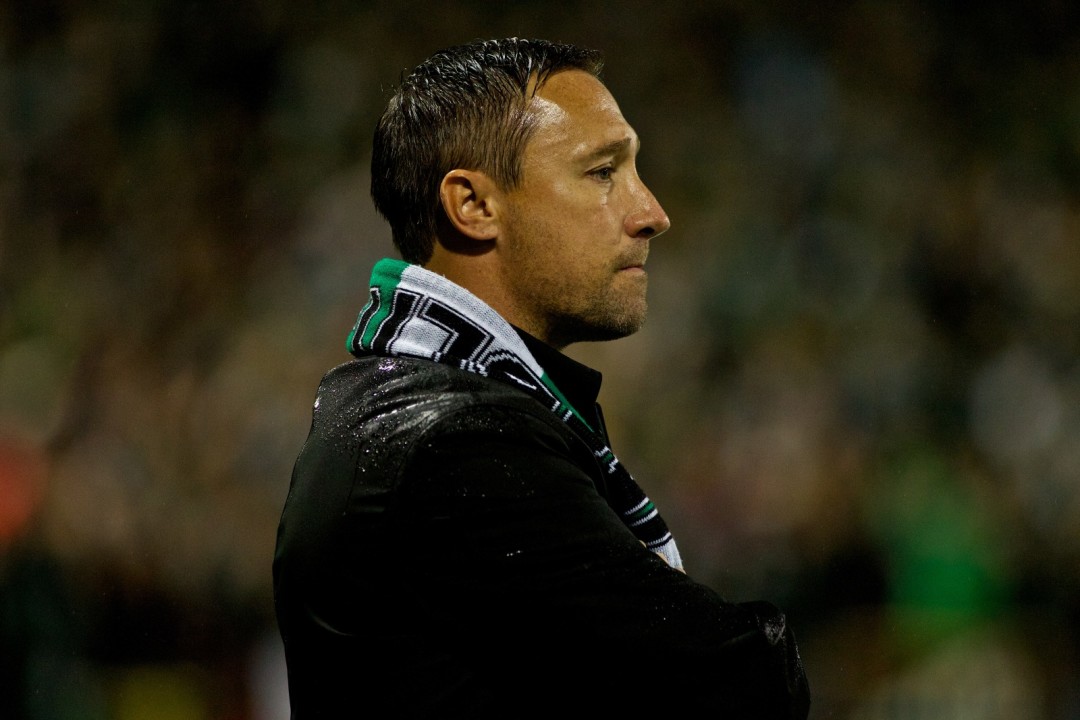
Porter on the sidelines against Real Salt Lake (October 17, 2014)
Image: Craig Mitchelldyer
What does Jay’s experience mean for you personally?
I’m a young head coach still. I’m 39 years old [at the time of this interview–Ed.] I think it’s very important as a coach that you continue to grow. I think you need to have a clear vision of how you want to do things, but the game is changing every year, and some of the trends are changing every year. I find that every year I try to adapt in line with my team, in line with the trends of the game, and where we’re going.
Jay’s another guy that we have on our technical staff that can help us make decisions, and bring experience and insight when we’re sitting in the war room and we’re discussing the next game, and we’re discussing as a club how we can be better. This guy’s been around the game a long time. He’s studied the game at a high level religiously over his career. He’s a great developer of players, he’s shown that at Wake Forest, but he’s also a guy that will help our entire technical staff to continue to evolve this club into one of the best clubs in the league. Whether that’s helping bring some new things to the academy, whether that’s helping to sift through players that we need to sift through, whether that’s going into a game with a little bit of insight about what he knows about an opponent, whether that’s challenging my beliefs and ideas, which is always good. Perhaps he can bring some new things into the fold from a tactical standpoint. It’s another really good soccer mind on our technical staff that will help in a lot of different ways.
